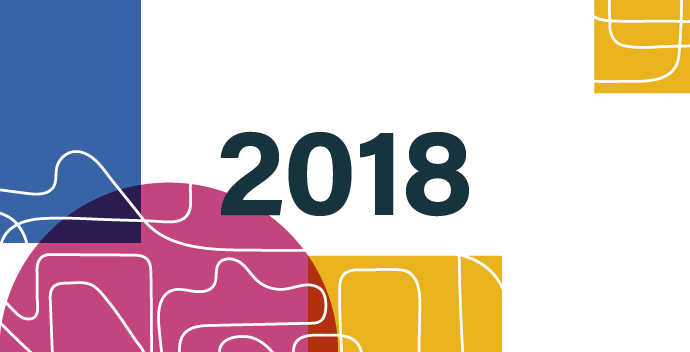

About the episode:
Technology is changing countless industries, shifting paradigms, and restructuring the way organizations operate. In legal, technology has ushered in a new era of innovation, giving lawyers and law firms new ways to deliver services to clients. Now and in the years to come, legal professionals and practices that adopt these new innovations will be the ones that succeed in the long run.
In Episode 10 of the Matters podcast by Clio, we explore the concept of tech competence—a.k.a. tech savviness—to illustrate why legal professionals need technological skills, what’s at stake for firms that don’t embrace new tools, how lawyers can improve their familiarity and proficiency with legal software, and more.
Joining us are two experts—Bob Ambrogi and Monica Goyal—who bring in-depth legal and technological perspectives to the discussion.
Our Guests:

Bob Ambrogi
Bob Ambrogi has written and spoken about the intersection of law and technology for over 20 years, and is one of the most well-known and respected journalists in the field. Besides being the founder of the LawSites blog, Bob is a lawyer and consultant who has written multiple books and is the host of the LawNext podcast. Follow him on Twitter at @bobambrogi.

Monica Goyal
Monica Goyal is CEO and Partner at Monica N. Goyal, L.P.C., a business and technology law firm in Toronto, Canada. She is also an adjunct professor at the Osgoode Hall Law School at York University in Toronto, where she has taught tomorrow’s lawyers about legal information technology and legal app development. Follow her on Twitter at @MonicaNGoyal.
Host bios:

Teresa Matich
Teresa Matich is the Content Strategist at Clio, where she’s responsible for educating the legal industry on market trends, best practices, and important issues impacting law firms. In her spare time, she enjoys traveling, snowboarding, and traveling to snowboard. Email her at [email protected] or tweet her at @TeresaMatich.

Andrew Booth
Andrew Booth is the technical producer for Matters, and works within the Business Operations department at Clio as the Learning Media Specialist. He is best known as the voice (and sometimes face) of Clio’s training videos. Andrew received his Broadcast Communications degree from BCIT, and has produced work for such broadcasting outlets as Global News and Roundhouse Radio. Email him at [email protected].

Derek Bolen
Derek Bolen is the Senior Manager of Customer Marketing at Clio, which means he gets paid to build relationships with the greatest customers in the world. When he isn’t working, he’s tweeting, reading, writing, podcasting, running, obsessing over fantasy football, or hanging out with his 5 year old son. Email him at [email protected], or tweet him at @hurrrdurrr.

Sam Rosenthal
Sam Rosenthal is a Content Strategist for Clio, specializing in thought leadership and creative content. A graduate of UNC-Chapel Hill’s journalism program, Sam works on literary fiction and screenwriting projects in his spare time. Email him at [email protected], or tweet him at @SamRoseWrites.
Show notes:
- Introduction: What tech competence is, and why it matters.
- Bob shares his perspective on the state of tech competence in the legal industry overall.
- Bob highlights why tech savviness is now becoming an ethical requirement for lawyers.
- Monica discusses why tech competence is important for increasing access to justice.
- Monica and Bob explain the main reasons why lawyers struggle to implement technology in their practices.
- Bob mentions The Future Ready Lawyer survey, and what it means for law firms.
- Bob and Monica discuss the risks for firms that struggle with tech competence, and the benefits for firms that prioritize this area.
- Monica and Bob talk about the things that need to change in the industry regarding tech competence.
- Bob and Monica talk about ways legal professionals can improve their tech savviness.
- Summary and closing statements.
Transcript
Read full transcript
Bob: Yeah. We’re really at a critical turning point right now, I think, in the legal field, in the legal industry and in society at large insofar as, you know, this isn’t just about lawyers but it’s about the people who need us as well. We’re still a long way from that. We still have a huge gap in access to justice.
So I mean I really would like to see that technology ends up being a product that is driving a greater good in the legal profession, and that’s our being able to bridge that justice gap and serve everybody who needs to be served.
Andrew: I’m Andrew Booth, and this is Matters. Matters is a podcast presented by Clio, the world’s leading cloud-based legal technology provider, where we look at small changes that can make a big impact on your daily life and practice. In this episode we’ll be talking about technological competence, and why it matters.
Technology is changing countless industries, shifting paradigms and restructuring the way organizations operate. In legal, technology has begun to usher in a new era where lawyers and law firms find innovative ways to deliver services to clients. Now and in the years to come, legal professionals and practices that are able to adapt with these changes will be the ones that succeed in the long run.
Bob: When I first started kind of writing about this stuff, I was thinking well, you know, I’ll write about this stuff for a couple of years and by then everybody will have it figured out and there won’t be any need for me to be writing about it anymore.
Andrew: That’s Bob Ambrogi who is, without a doubt, one of the most respected and well-known journalists who covers the legal technology space.
Bob: And here we are all these years later and a lot of lawyers still haven’t figured it out at all.
Andrew: Besides being the founder of the LawSites blog, Bob is a lawyer and consultant who has written multiple books, hosts a podcast called LawNext and has written and spoken about the intersection of law and technology for over 20 years. During that time, Bob has seen the legal industry come a long way in terms of tech competence, but he also feels there’s an even longer road ahead.
Bob: There are still an awful lot of lawyers who still don’t get technology or who still don’t use it well and I tend to feel that a lot of those lawyers – I don’t like to say this because I feel like a lot of those lawyers tend to be in solo and small firm practices—and on one hand I know a lot of solos and small firm lawyers who are miles ahead of the rest of the group in terms of their adoption and use of technology—but I do a lot of speaking, I go around a lot to bar associations, and I’m often at solo and small firm conferences. And I still meet an awful lot of lawyers there who just kind of throw up their hands when you start to talk about technology or tell you things like you know, they’re going to go to their graves without learning about technology or they’re long since going to be retired before they ever have to learn about technology.
They still see it as something in the future rather than something in the present and you know, that’s troubling because those lawyers are representing clients today and need to have those skills and don’t.
Andrew: Despite the slow pace of technological adoption across the legal industry at large, Bob clarifies that a good deal of lawyers have embraced legal technology in a meaningful way, and over the past five to ten years, he has seen a profound shift in the way legal professionals use technology in their firms. To him, this is encouraging and necessary. As the practice of law evolves to keep pace with society, Bob believes that tech competence is a standard of ethical and professional importance.
Bob: Well, there’s a couple of reasons. I mean one right now is the simple fact that this is becoming understood to be an ethical requirement. That you know, I’ve written a lot about what I like to call the duty of technology competence but you know, the ABA amended the model rules back in 2012 to create a requirement that lawyers have a duty to keep abreast with changes in technology and the benefits and risks of technology. That has now been adopted here in the US by 36 states—formally adopted by 36 states and a couple of others that are considering it or have kind of informally adopted it through ethics opinion.
So you know, as a matter of professional responsibility, lawyers have a duty to be technologically competent. But more importantly than that, I think what really matters is that I don’t think—a lawyer today cannot competently represent a client without at least a minimum level of competence in technology and there’s kind of two sides to that. I mean on one side technology provides the tools that help a lawyer do a better job, compete effectively, represent the client effectively, deliver results at lower cost. So the tools of the trade, so to speak, are technology tools these days. And then you know, the other side to that is your clients are using technology and you can’t effectively or competently represent them in their matters if you don’t understand the technology they’re using or how technology could impact their case.
Andrew: Similar to Bob, attorney Monica Goyal, CEO and partner of Monica N. Goyal LPC, feels that the legal community as a whole has been slower to adopt new technologies than it should be. Before starting her own firm which specializes in business and technology law, Monica worked as an engineer for tech companies in Silicon Valley, and then she founded her own legal tech start-up called My Legal Briefcase. That experience taught her a lot about lawyers’ tech competence and why it was hard to move the industry forward.
As a result, Monica began working with law students as an adjunct professor at the Osgoode Hall Law School at York University in Toronto. There she has taught tomorrow’s lawyers about legal information technology and legal app development. She feels these are essential subjects not just for law students but for all legal professionals.
Monica: When I think of tech competence, I think about you know, how are lawyers actually doing their work. Are they doing work in the most productive and efficient way that they could for their client? We have rules of professional conduct that govern how we’re supposed to deliver services and in those rules it says that you are supposed to deliver services in a timely and cost-effective manner. So you’re supposed to be, as a lawyer, doing those things. And so there is an ethical component to that because if you’re not—if you’re doing your work in a way that is not the most productive or efficient way, then that is resulting in higher legal costs for your client.
That is an ethical issue and I believe that that’s an access to justice issue because it’s expensive for most Canadians and Americans to afford a lawyer. I see technology as being kind of a key way that we could deliver legal services in a way that’s more efficient, cost-efficient for just the average person out there, and so I think tech competency is a key component of that.
Andrew: One of the things that Monica notices that holds legal professionals back is a lack of training during both law school and at their firms. Lawyers and other legal staff, she says, aren’t being given the tools and knowledge they need to understand which tech options are available to them, or how to use different software platforms and applications to do their jobs more effectively. She believes law schools, firms and bar associations should incentivize legal tech training so lawyers prioritize these skill sets, because right now lawyers are just teaching themselves how to use tech tools, and that often isn’t enough.
Bob: I think a real problem for a lot of lawyers is not that they don’t want to learn about technology or don’t want to become more proficient in technology, it’s that they don’t have time in their day. Clio’s own legal trends survey, you know, does a great job of sort of documenting the difficulty lawyers already have in finding time during the day to practice law, and learning about technology is something that they see as a time suck. And they just don’t have the time to do that, to kind of sit down and try and figure out.
I mean one of the most common questions I get from lawyers, and I’m not saying this just because this is a Clio podcast but is often, you know, I know I should get a practice management solution but I don’t know which one. Can you just tell me? Have to answer that no, I can’t just tell you [laughs]. There’s a lot of variables in that and you need to do some research. You need to do some work or get a consultant or something. But you know, they just—lawyers just want somebody to figure it out for them. They don’t have the time to do it and that’s a real difficult problem to overcome.
Andrew: Bob says that the simple fact of bars adopting the duty of technology competence standards is a major step towards overcoming legal’s technology gap because it signifies to lawyers that this is important. It’s something they have to learn, Something that is considered one of the necessary skillsets for being a lawyer. He says two states have already adopted a continuing legal education requirement for technology training, and he thinks that the more states that follow suit, the clearer the need for tech competence will become.
In both his and Monica’s eyes, there’s already a difference between firms that embrace technology versus those that don’t. And in the years ahead, they believe this divide is only going to widen. Bob references a 2019 study put together by the legal publishing company Wolters Kluwer which delves into the concept of the future-ready lawyer.
Bob: Basically, they looked at firms that had been kind of early adopters of technology in their firms, and how they compared to firms that had been slower or are still dragging their feet in adopting technology, and that survey found very clear and demonstrable advantages to law firms that had adopted technology—including that generally across the board, firms that already were making good use of technology tended to be more profitable than other firms.
Now, that’s an interesting point because sometimes one of the arguments that you hear lawyers make against technology is that they worry the technology is going to cut into their profits because they worry that you know, they bill by the hour and if they get a tool that’s going to help them be more efficient and make it take less time to get work done, that therefore they’re not going be billing as much. And the evidence points exactly the contrary.
Andrew: The future-ready lawyer survey breaks law firms into three categories based on overall tech adoption: leading, transitioning and trailing. Leading firms are already using technology well and will continue to implement new tech in the next three years. Transitioning firms are using technology to a degree now and plan to use it more in the future. And trailing firms don’t use technology much now and don’t plan to use it much in the years ahead.
According to the survey, only 34 percent of lawyers overall believe their firm is very prepared to keep pace with changes in the legal market, but at technology leading organizations this rate climbs to 50 percent. Still, this and other stats in the survey showed just how large the gap is between the need for firms to adopt technology, and the readiness to do so. The survey reports that 72 percent of respondents say that dealing with large amounts of complex information is a top trend, yet only 31 percent feel very prepared to address it.
Bob mentions that firms which are seen as technology leaders are more nimble, more able to respond to industry shifts, and more profitable. He believes these leading firms fare so well because technology enables them to be more competitive in the marketplace, to land more clients, to do more work in less time, and to offer billing models that clients prefer. As Bob himself is quoted in the survey, “The best way to be future-ready is to not wait until the future to prepare,” and firms that wait too long to change their ways face significant risks.
Bob: Yeah, ethics and even malpractice lawsuits are huge risk factors in the technology area, and I think a lot of lawyers underestimate or don’t even think about that risk. The American Bar Association put out an ethics opinion that talked about a lawyer’s obligations with regard to protecting confidential communications and that ethics opinion made very clear that lawyers have a responsibility in every single case they handle to evaluate the technology that will be used to communicate with the client, whether it’s email or file transfers or where files will be stored, digital files will be stored, whether it’s in the cloud or you know, in a local installation somewhere. You know, and to understand what the risks are, understand who the vendors are, who is going to be storing that data.
There are complex questions that lawyers need to be exploring. My experience suggests that there are an awful lot of lawyers out there who don’t—wouldn’t even know where to begin in asking the right questions around this sort of thing. They don’t understand the technologies at play here. We have not, so far, seen any kind of major cases where a lawyer has been, I don’t know, like disbarred or something over technological incompetence. There have been some cases where lawyers have been subjected to bar discipline for incompetence.
So I think we are going to see more of those kinds of matters coming to the surface, and perhaps one big one somewhere that’s really going to be a wake-up call to lawyers that boy, I can really get in trouble here [laughs] if I don’t understand this stuff.
Andrew: The other major risk Bob identifies for firms is the very real possibility of getting left behind while competitors modernize in advance. He says that at many firms which are currently making lots of money, there tends to be resistance to implementing new technologies because things are working well at present. But in the long run this will make the firms vulnerable.
Bob: Well, what we see there is that there is increasingly competition from tech-savvy operations of one kind or another. I mean the biggest sources of competition for larger established firms right now are two—there are two sources. One is other firms that are more nimble and savvy about technology. We’ve seen especially in the last couple of years a number of law firms that have launched technology initiatives either within the firm or even as separate spinoffs that develop technology to use with their clients. So those firms are clearly going to have a competitive advantage.
Andrew: Bob says the other major sources of competition are alternative legal service providers, or ALSPs. These organizations provide legal services to clients but have different business models than the typical law firms. Notably, the big four companies of Deloitte, Ernst & Young, PWC, and KPMG are among the types of business operations which are venturing successfully into legal.
Bob: They are using the old people-process-technology formula to do it very successfully and they are delivering services more efficiently and at lower cost, and picking up greater and greater shares of the market.
Andrew: Bob adds that the biggest pressure on law firms to adopt legal technology comes from their clients, who are much savvier and pickier today than they used to be. And Monica couldn’t agree more. She says that firms have no choice but to become technologically competent.
Monica: You know, the market has already moved. There’s already momentum, and their clients are already kind of using certain technologies and so to be with your—to be working with your clients, you’re going to have to get on board and use the technologies. And we’ve seen this in law in other cases where, you know, maybe email for example. Lawyers weren’t kind of early adopters of email, but their clients kind of forced them to use and adopt email.
So I would say one thing is that they have to kind of get up to date in learning these technologies, new technologies to kind of be working with their clients.
Andrew: In order to change lawyers and firms’ mindsets regarding tech adoption, Monica says there are a number of things that need to happen.
Monica: I think that even from an early stage like at the law school level, law students should be exposed to and starting to get skills and training around the different technologies so that they already have some of that expertise going into their job, so they don’t have that additional pressure when they are practicing law. And then I think for lawyers, I think it really depends on, are you in a big firm or are you in a solo or small firm? Like it’s those are going to be factors that are going to influence how much time the lawyer has, but they should be prioritizing at least some of this because there’s real benefits that they can get by improving their technological capabilities.
Andrew: One of these real benefits Monica speaks about is the competitive advantage of advertising and marketing a firm’s services better. Thanks to technology, she says firms which are more ahead of the game can better target their ideal audiences in order to get more and better clients.
Monica: And then the second thing that I think is a real benefit is that if you’re like for example a solo, small firm lawyer, I tell like all of my friends to use Clio. Clio is just an example of a really great cloud practice management platform, but it really has helped me to kind of streamline the backend processes. And so by streamlining, automating or streamlining some of those administrative types of tasks, you can really help to reduce your overhead.
Andrew: Bob echoes Monica’s feelings that the value of legal technology for solo and small firms is huge.
Bob: The greatest benefit of technology for solo and small firm lawyers has always been that it levels the playing field for them. You know, the time was, going back to when I started out in law practice, that solos were—solo and small firms were at a real disadvantage in certain kinds of matters, in particular, litigating large matters for example, and now there are tools that you know, bring that all down to scale. That make it so that in fact a solo lawyer or a small firm lawyer can just as effectively represent a client in a significant litigation.
You know, harkening back to that Clio survey, I mean one of the—again, one of the problems that lawyers have is just finding enough hours in the day, and technology gives you back some of that time if you’re using it. So there are real lifestyle advantages as well to being technologically competent.
Andrew: Whether you’re just starting out with legal technology or even if you’re already well versed in this area, our experts say there are a number of ways to improve.
Bob: Going to conferences turns out to be a really good way to learn about using technology in your practice. The Clio conference is a great conference for that. I’ve written favourably on my blog about the Clio conference is a great place to go and learn about technology. The ABA tech show. Any of the number of—you know, most of the state bars put on some sort of a technology conference or solo, small conference that has a lot of technology components to it.
The best way you can learn is hands-on. The best way you can learn is to start to use some of these things. And I realize that’s a daunting proposition in and of itself because if you don’t understand the technology you don’t know how to get your hands onto it and start using it, but the more you can start using it, reading about it. There are a number of good legal tech blogs out there. You know, good magazines. ABA Law Practice Today is a great magazine for following developments in technology.
So you know, really read, go to conferences, educate yourself. Take some time to do it. In the long run, it’s going to be time well spent.
Andrew: For Monica hands-on learning is critical, especially when law students and lawyers start to really understand how implementing tech can change the practice of law.
Monica: I do see that the students that I’m teaching—I see it when they get that aha moment that this is the future, this is what’s happening. And I think that they are still going to go into these work environments where they’ll see that things are very different, that they’re still, you know, not using the technologies that they’ve been exposed to, but I think that they are still these change agents in these places. So I see that as one thing that could potentially help to change things in the profession.
Andrew: Monica also feels that firms which incentivize tech competence are moving the needle for the industry. She says some forward-thinking firms are giving lawyers billable time for learning tech skills, offering training resources to their staff, and asking for innovative ideas so legal professionals start to think of new ways to use technology.
With some of her students, she has them choose legal problems they want to solve and create new apps to fix those issues. Monica gets passionate when she talks about her students and the need for better adoption of tech in the legal industry. And one thing she stresses is that lawyers don’t need to learn to code or understand artificial intelligence. They just need to understand the essential tools that can help them drive their practices forward.
Monica: If you’re reluctant to even just use these tools in an efficient, productive manner, if you put a more sophisticated tool but you’re not doing the training and learning around that tool, how do you know that you’re going to get the most out of it?
Andrew: When it comes to identifying the best tech solutions for lawyers, especially those who aren’t the most tech-savvy to begin with, Bob and Monica have a few suggestions—not surprisingly, around practice management, client intake and client relationship management.
Bob: Well, I’ve said this any number of times that I think the practice management software is number one. I think the growth in practice management over the past ten years has been one of the most important trends in the last decade in the legal profession. Companies such as Clio, you know, Rocket Matter, MyCase, any number of companies out there that have really pioneered this area have made this software easier to use and more easily available to lawyers, and as a result more lawyers are using it and you know, I think that’s—I think that’s the number one key to protecting yourself as a lawyer, to better serving your client and to maintaining your sanity [laughs], I guess, as a lawyer is to have a good practice management platform.
Monica: I have my documents like on the cloud. I can easily share with my clients their documents. I use, for example, Clio as a kind of a CRM. So client relationship management tool, but also to keep track of every single step that we take on a file and I can then share that information with my client so they can see these are all the steps that we’ve taken. And so if they have to ever create a summary of what we’ve done on a case or what we’ve done on a particular matter they can see all that information in the system. And so that’s like almost a, you know, next level, I think, in terms of how you kind of engage and interact with a client.
Andrew: Looking ahead to the future, Bob feels that legal technology companies like Clio will continue to steer the industry towards embracing newer and more powerful tools.
Bob: [Laughs] In my mind it’s not an understatement to say, you know, it’s really kind of caused a revolution in the way that lawyers run their practices, and I really think that that’s been the most dramatic change over the last ten years that I’ve witnessed as somebody who follows the space, has been just the much wider adoption of practice management software and the much wider understanding of why you should adopt it in the first place and why it matters to have it.
In terms of moving this into the next, you know, where do we go from here and what’s Clio’s role in that, Clio has the potential to continue to define and revolutionize this space. I mean what I really continue to hope for is that legal technology will enable the legal profession to better serve those who need its services, and we’re still a long way from that. We still have a huge gap in access to justice by people who are low or moderate income or small businesses. Those people have trouble getting the legal help that they need, often don’t even know when they need legal help.
So I mean I really would like to see that technology ends up being a product that is driving a greater good in the legal profession and that’s our being able to bridge that justice gap and serve everybody who needs to be served.
Andrew: Thanks for listening to the tenth episode of Matters. To learn more about tech competence and the way you can improve your legal tech skills, or to read the future-ready lawyer report, check out the resources section of this podcast.
Matters is produced by Andrew Booth, Sam Rosenthal, Teresa Matich and Derek Bolen and by Clio, the world’s leading cloud-based legal technology provider. Be sure to subscribe to Matters so you never miss an episode. If you’d like to learn more about Clio please visit us at clio.com.



